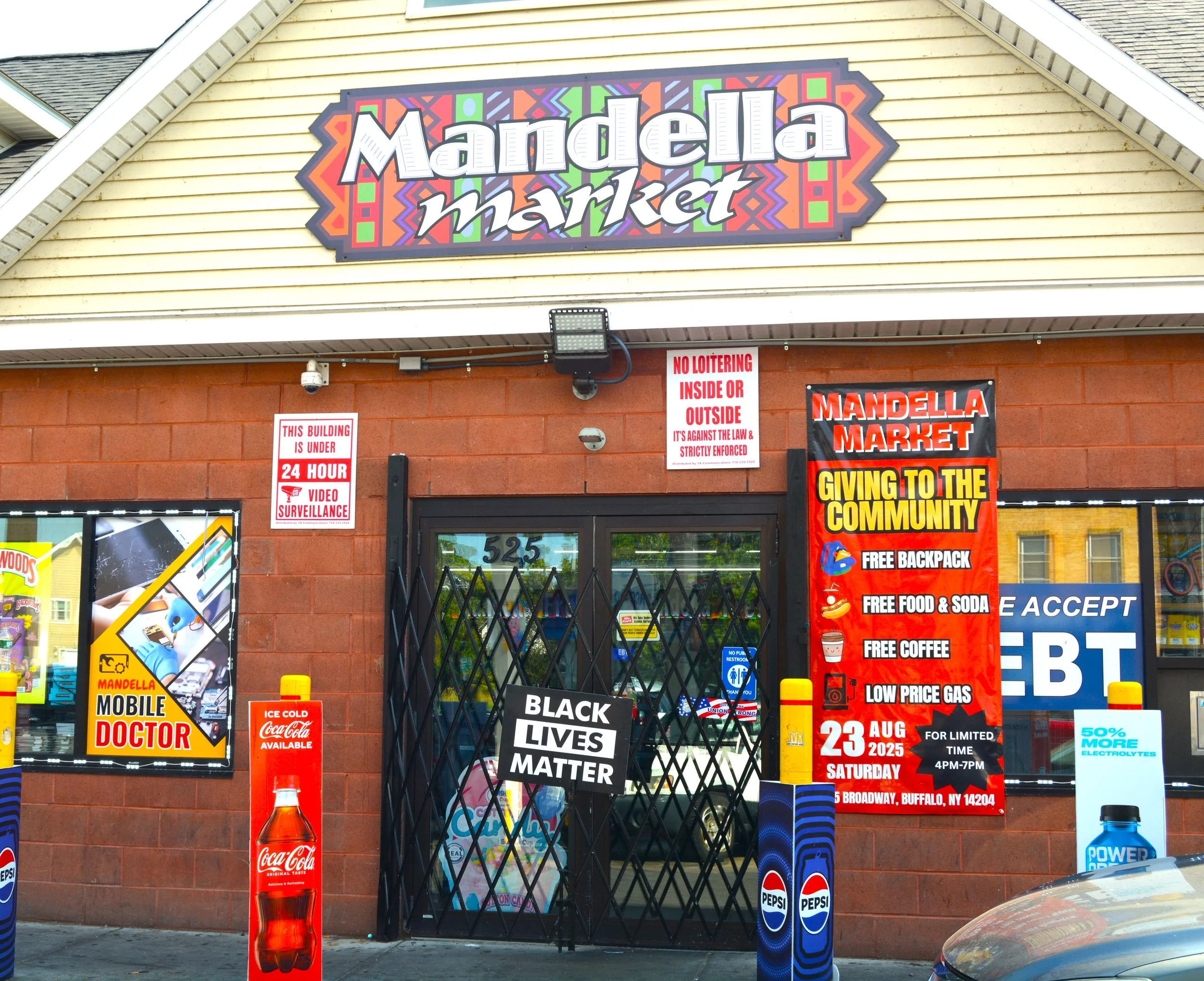Mandella Market and the East Side of Buffalo: A Call for Healing, Accountability, and Collective Action
By Minister John-Henry Grant
Minister John-Henry Grant
The recent unrest surrounding Mandella Market on Buffalo’s East Side has shaken our community to its core. The disturbing footage of an older Black woman being assaulted by store employees—restrained and struck with a stick—has sparked outrage, protest, and a long-overdue reckoning. The city’s swift action to shut down the store due to both the incident and longstanding code violations was necessary, but it is only the beginning of a deeper conversation.
This moment is not isolated. It is the result of decades of systemic neglect, economic disinvestment, and cultural disconnect. For over 30 years, vacant lots have lined our streets—no grocery stores, no fresh produce, no community-led development. Mandela Market, like many corner stores in underserved neighborhoods, became a symbol of survival and scarcity. But survival without dignity is not enough.
We must also understand the global context. In Southeast Asia, countries like Nepal and Bangladesh are still grappling with the remnants of civil unrest, military takeovers, and martial law. These traumas ripple across oceans and into our neighborhoods, where immigrant store owners carry the weight of displacement and economic struggle. That context matters. It does not justify violence, but it helps explain the layers of tension and misunderstanding that exist.
Still, the response to this incident—while rooted in righteous anger—has at times been chaotic and uncouth. Blocking entrances, shouting matches, and escalating confrontations are not the resolution we need. We must rise above the pain and channel our energy into transformation.
And we are not starting from scratch. Leaders like Reverend Boyd and Group Ministries, Reverend Giles, Reverend Pridgen, Reverend Simmons, Overseer Chapman, The Grant Lady, UB’s Dr. Taylor, Brandi Barrett, Nate Boyd—just to name a few—have been doing this groundwork for years. They have planted seeds of hope, built bridges, and carried the weight of our community’s struggles on their backs.
This is heavy lifting. It takes a large collective. But I believe in the East Side of Buffalo. I believe in my people. I know we can do better than what we’re seeing right now.
Let this moment be a turning point. Let us come together—not just to protest, but to build. Let us address the food insecurity, the lack of fruits and vegetables, the gambling, the drugs, the violence, and the despair. Let us ask why our community hasn’t been given the tools to invest in itself—and then let us create those tools.
So much love. So much life. And may the grace of God be with each and every one of you.


